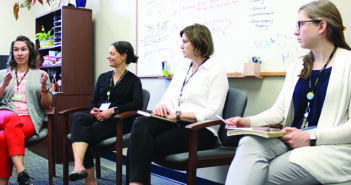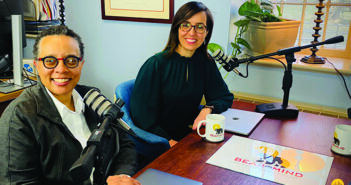Should adults get another measles vaccine?

Leonard Mermel, DO, ScM, professor of medicine at the Warren Alpert Medical School. An infectious diseases physician, Mermel is the medical director of the Department of Epidemiology and Infection Control at Rhode Island Hospital.
As the US confronts the worst measles outbreak since it was declared eliminated in 2000, some adults are wondering if the vaccine they got decades ago still works. Conflicting media reports have raised concerns about the measles vaccine administered in the mid-1960s, when it was new and not as effective; and vaccinations given before 1989, the year health officials began recommending two doses of the MMR (measles, mumps, and rubella) vaccine.
Most people who’ve been vaccinated, or been infected with measles, are considered immune. Adults at high risk—college students, health care workers, and international travelers—need to have had two doses of MMR. Adults who aren’t at high risk are considered immune if they had at least one dose on or after their first birthday, had a lab test confirming their immunity, or were born before 1957, when measles was widespread. If you fall in one of these categories, the US Centers for Disease Control and Prevention (CDC) says you don’t need revaccination. However, the CDC does recommend that anyone exposed to measles get tested to make sure they’re immune and, if they test negative, get the MMR vaccine.
At Rhode Island Hospital, we prepare for Ebola and all sorts of things. But I’ve been saying for a while, my big concern is measles. It’s so highly contagious and it spreads through the air like tuberculosis. And you can transmit it before the rash appears, which is scary: you’re communicable for four days before the rash appears and four days after. Before it appears, someone can look like they have a bad cold, but they’re actually transmitting measles. They go to school, to work—and then they get the rash.
Unvaccinated individuals not only risk getting measles themselves, they risk transmitting it to those who can’t be vaccinated, like people with weakened immune systems. You don’t live in a bubble. What the average person doesn’t realize is it’s not a trivial illness. People get pretty sick. Otherwise healthy people can have severe complications from measles—inflammation of the heart, inflammation of the brain—that can kill you or lead to lifelong, irreversible effects. It’s a horrible disease. And we can prevent it with a vaccine. Pun intended, it’s a no-brainer.




